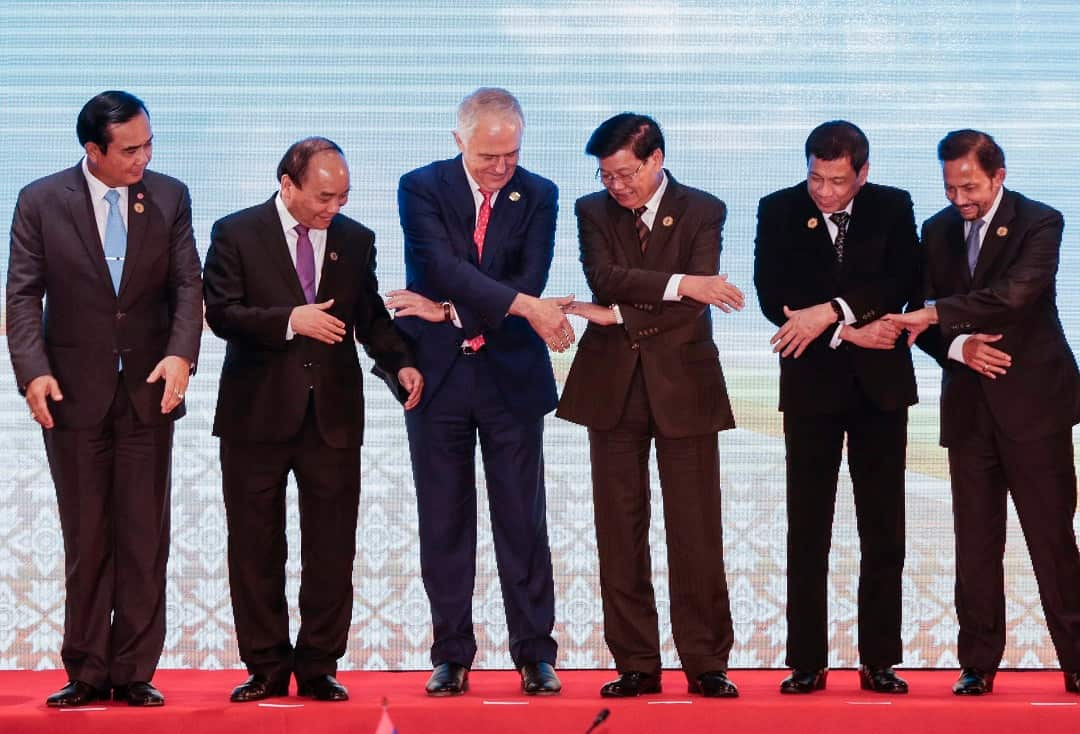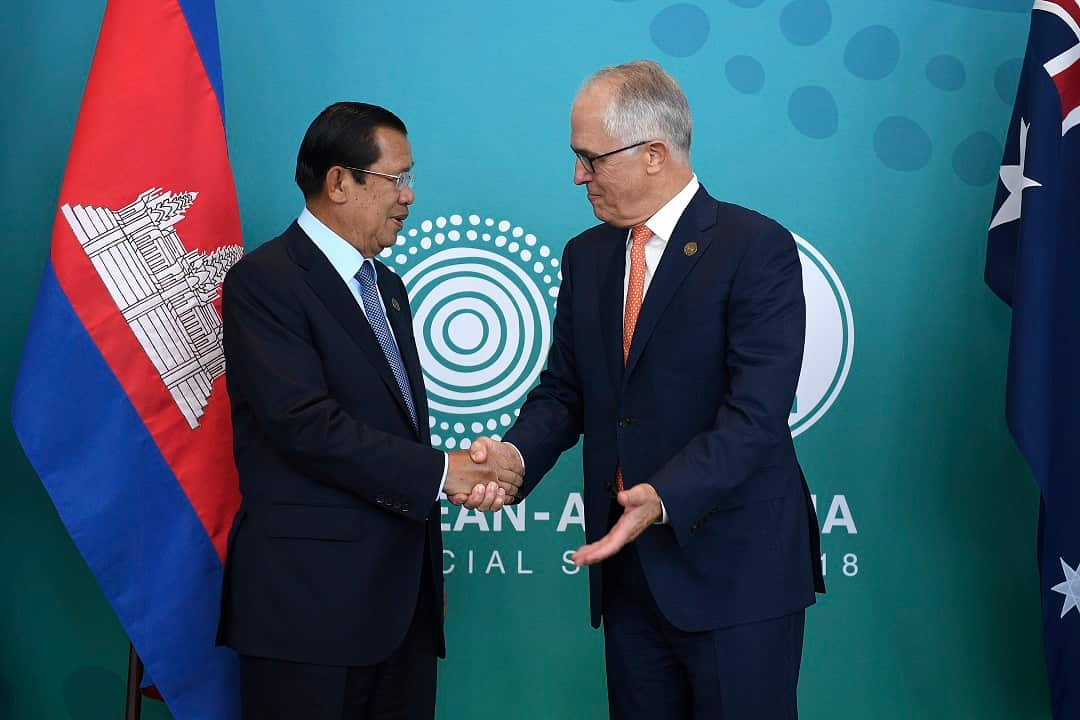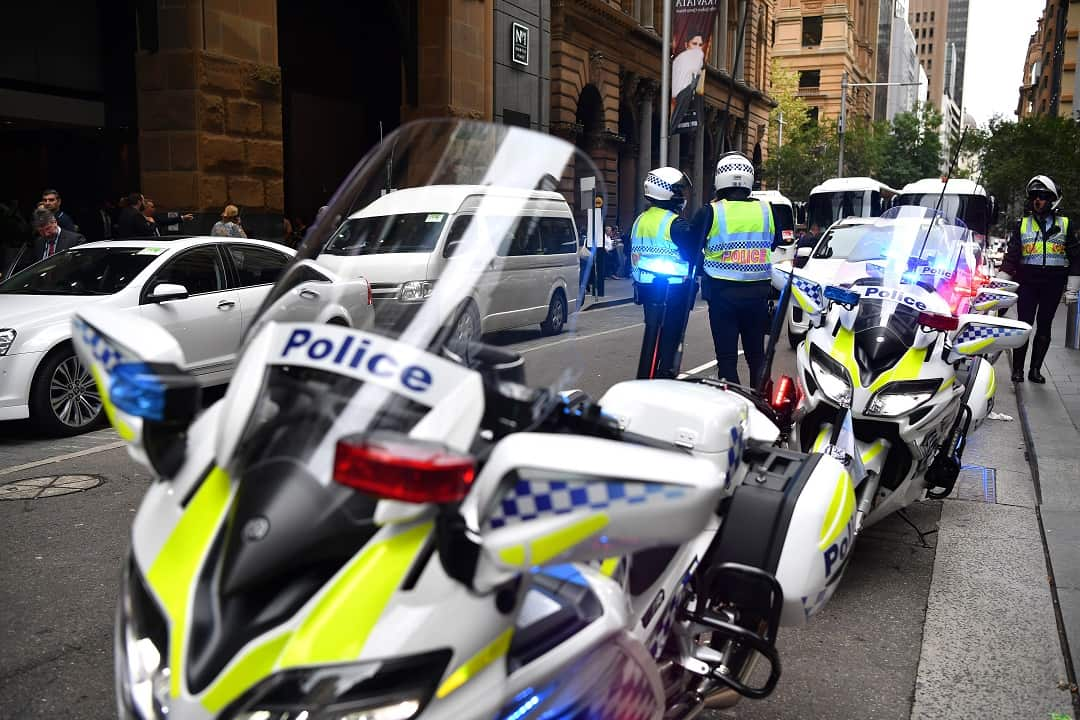What is ASEAN?
The Association of Southeast Asian Nations (ASEAN) is a regional intergovernmental organisation made up of Indonesia, Thailand, Vietnam, Singapore, Philippines, Malaysia, Cambodia, Myanmar, Laos and Brunei.
It was founded in 1967 with the aim of promoting regional stability and economic growth among its members.
Australia has been a so-called 'dialogue partner' of ASEAN since 1974, but the ASEAN-Australia Special Summit (17-18 March) will be the first time it has held a meeting with ASEAN leaders on home soil.
Why is it coming to Sydney?
Australia and ASEAN began biennial leaders' summits in 2016, with the first at Vientiane, Laos.

Heads of government or state from most of the 10 ASEAN members will attend the Sydney summit, although one notable exception is firebrand Philippine President Rodrigo Duterte.
Where could controversies arise?
Two of the more controversial leaders to attend are Cambodian Prime Minister Hun Sen and Myanmar's de-facto leader Aung San Suu Kyi.
Under Hun Sen's rule, Cambodia has shifted towards authoritarianism following last year's ban on the main opposition party, the arrest of opposition leader Kem Sokha and forced closure of an English-language newspaper.
Ahead of the summit, he sparked a storm by reportedly threatening to "beat" any demonstrators and warned he would "shame" Australia and block the release of a joint communique if he was embarrassed in any way.

Meanwhile, a military crackdown in Myanmar's Rakhine state that began in August has seen nearly 700,000 of the mainly Muslim Rohingya minority flee to Bangladesh. Pressure has been mounting on Aung San Suu Kyi after a top UN rights expert warned this week the situation bore "the hallmarks of genocide".
Human Rights Watch Australia director Elaine Pearson said Australia must avoid a "dance with dictators" and bring up human rights abuses during the summit.
Amnesty International hosted a demonstration on Friday morning to draw attention to the plight of the Rohingya people.
"ASEAN has been shamefully silent on what is happening in one of its member states so far," the advocacy group said in a statement earlier this week.
Further protests against the two leaders are planned for the weekend.
What's being talked about?
The key themes ASEAN leaders will address are trade, counter-terrorism and the global rise of nationalism.
The Australian government has said that another topic will be "the ongoing threat posed by North Korea and the importance of maintaining pressure through economic sanctions."
What's in it for Australia?
Australia is looking to boost economic and security ties with the region.
As a bloc, the 10 ASEAN member countries make up Australia's third-largest trading partner, worth almost $100 billion in 2016/17.
By 2030 there will be an estimated 161 million middle-class households in ASEAN nations - a huge opportunity for Australian food and produce exports as well as expertise and services.
Prime Minister Malcolm Turnbull has called the meeting "a coming of age of Australia's relationship with Southeast Asia."
Is Australia part of Southeast Asia?
Indonesian President Joko Widodo wants Australia to become a full member of ASEAN, signalling on Friday he is keen on Canberra playing a bigger regional role in defence, trade and security matters.
And there is interest locally also. In a report last month, the Australian Strategic Policy Institute argued that Canberra should aim for ASEAN membership by 2024 - its 50th anniversary of being a partner - and use the Sydney summit as a launch pad.
But the Department of Foreign Affairs and Trade has been traditionally opposed to Australia joining ASEAN over fears it would stymie the ability to criticise human rights records of members and cramp its independence.
How will the city be affected?
Hundreds of officers will be deployed to the streets of Sydney in the biggest security operation since the city hosted the APEC Summit in 2007.

NSW Police Minister Troy Grant beefed up police powers to allow the force to block off parts of the city, conduct searches, remove vehicles that are causing obstructions and prevent drone flights.
NSW Police Assistant Commissioner Michael Willing said the laws, which will temporarily allow traffic changes and road closures, will see ASEAN's VIPs travel safely through the city.
Additional reporting: AFP, AAP

